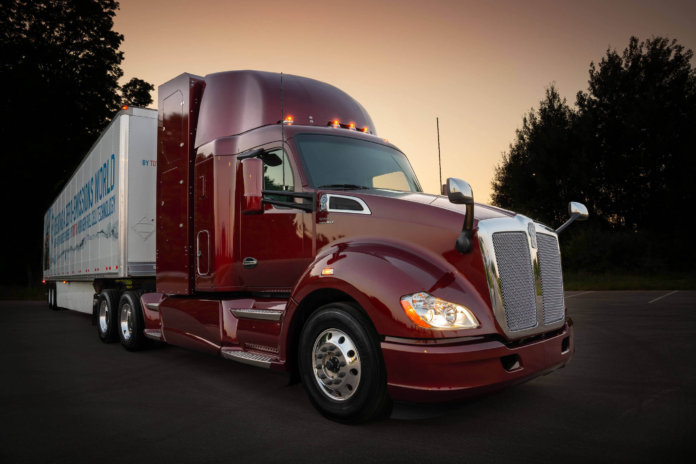The California Air Resources Board (CARB) has preliminarily awarded $41 million to the Port of Los Angeles for the Zero-Emission and Near Zero-Emission Freight Facilities (ZANZEFF) project.
The total project cost for this initial phase is $82,568,872, with partners providing 50.2%, or $41,446,612, in match funding.
The ZANZEFF project – proposed with support from Toyota, Kenworth and Shell – provides a large-scale “shore to store” plan and a hydrogen fuel cell electric technology framework for freight facilities to structure operations for future goods movement. The initiative is expected help reduce emissions by 465 metric tons of greenhouse gases (GHG) and 0.72 weighted tons of NOx, ROG and PM10.
The ZANZEFF project is part of California Climate Investments, a statewide initiative that puts cap-and-trade dollars to work in reducing GHG emissions, strengthening the economy, and improving public health and the environment – particularly in disadvantaged communities.
“The Port of Los Angeles is showing the world that we don’t need to choose between environmental stewardship and economic growth, and this funding will help put zero-emissions goods movement within our reach,” says Eric Garcetti, mayor of Los Angeles.
“This matching grant from CARB’s California Climate Investments program is critically needed funding support to develop and commercialize the next generation of clean port equipment and drayage truck, as well as the infrastructure to support it,” adds Gene Seroka, executive director of the port.
The Port of Los Angeles will develop the project in several phases, ultimately encompassing initiatives in Southern California, the Central Coast Area and Merced County. The initial phase is designed to kick-start the leap to a new class of goods movement vehicles while reducing emissions in designated disadvantaged communities.
The project phases will include as follows:
- Ten new zero-emissions hydrogen fuel cell electric Class 8 on-road trucks on the Kenworth T680 platform will be developed through a collaboration between Kenworth and Toyota to move cargo from the Los Angeles ports throughout the Los Angeles basin, as well as ultimately to inland locations such as Riverside County, the Port of Hueneme and eventually Merced. The trucks will be operated by Toyota Logistics Services (4), United Parcel Services (3), Total Transportation Services Inc. (2) and Southern Counties Express (1).
- Two new large-capacity, heavy-duty hydrogen fueling stations will be developed by Shell in Wilmington and Ontario, Calif. The new stations will join three additional stations at Toyota facilities around Los Angeles to form an integrated, five-station, heavy-duty hydrogen fueling network. Together, they will provide multiple sources of hydrogen throughout the region, including over 1 ton of 100% renewable hydrogen per day at the heavy-duty station to be operated by Shell, enabling zero-emissions freight transport. Stations supplied by Air Liquide at Toyota Logistics Services in Long Beach and Toyota Technical Center in Gardena will serve as important research and development locations.
- Expanded use of zero-emissions technology in off-road and warehouse equipment, including the first two zero-emissions yard tractors to be operated at the Port of Hueneme, as well as the expanded use of zero-emission forklifts at Toyota’s port warehouse.
Review and input on project implementation will be provided by the National Renewable Energy Laboratory and the South Coast Air Quality Management District.
“This award is another recognition that hydrogen is a promising zero-emission solution for the heavy-duty transport sector,” notes Matthew Tipper, vice president of new fuels at Shell.





“The Port of Los Angeles is showing the world that we don’t need to choose between environmental stewardship and economic growth.” You bet.